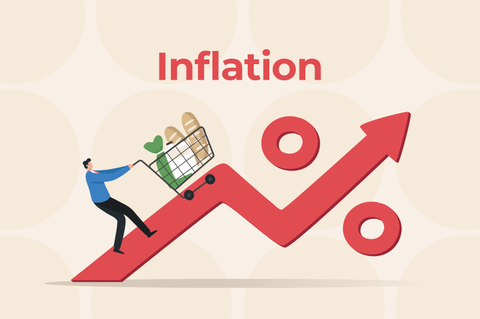The Impact of Inflation on Businesses: Navigating the Challenges


Inflation, the steady rise in prices of goods and services over time, has wide-ranging effects on the economy. While it affects consumers’ purchasing power and the cost of living, it also has a profound impact on businesses.
Let’s explore the effects of inflation on businesses and discuss strategies that companies can employ to navigate the challenges it presents.
One of the immediate effects of inflation is the increased cost of production. As prices for raw materials, labor, and energy rise, businesses face higher input costs, squeezing their profit margins. Companies must carefully analyze their supply chains, identify cost-saving opportunities, and explore alternative sourcing options to mitigate the impact of rising costs. By establishing strategic partnerships with suppliers, negotiating long-term contracts, or exploring new technologies to enhance efficiency, businesses can offset the effects of inflation on their bottom line.
Inflation often leads to changes in consumer behavior. As prices rise, consumers may become more price-sensitive and cut back on discretionary spending. This can be challenging for businesses, especially those offering non-essential goods or luxury products. In response, companies may need to adapt their marketing strategies, focus on value propositions, or explore new market segments to maintain customer demand.
Inflation also poses challenges for companies with regards to pricing strategies. While it may be tempting for businesses to increase prices to maintain profit margins, doing so without careful consideration can lead to reduced sales and a decline in market share. Companies must strike a delicate balance between offsetting cost increases and remaining competitive. Developing pricing strategies that take into account not only inflation but also market competition and consumer demand is crucial.
Additionally, inflation affects borrowing costs and capital investments. As interest rates rise in response to inflation, businesses face increased costs for loans and financing. This can hinder investment in expansion and development, or capital-intensive projects. Companies must carefully assess the potential returns on investment and consider alternative financing options to navigate the high-cost borrowing environment. Business owners may also explore cost-cutting measures, reallocate resources, or seek partnership opportunities to access the necessary capital for growth.
Although inflation poses challenges for businesses, it can also present opportunities. For example, companies that can anticipate inflation trends and adjust their pricing strategies accordingly can gain a competitive advantage. Industries that provide goods or services with inelastic demand, such as healthcare or essential consumer goods, may be less affected by inflation. Businesses that offer innovative solutions or increased efficiency to clients during times of rising costs can also thrive.
Specific industries, such as real estate and commodities, can benefit from inflation due to the increased value of their assets. Investors and businesses can capitalize on these opportunities by strategically allocating resources or diversifying their portfolios.
Inflation is a critical factor that businesses must manage effectively to ensure sustainability and growth. In a dynamic economic environment, understanding the impact of inflation and being proactive in addressing its challenges is essential for businesses to thrive.
